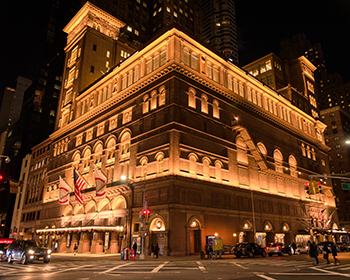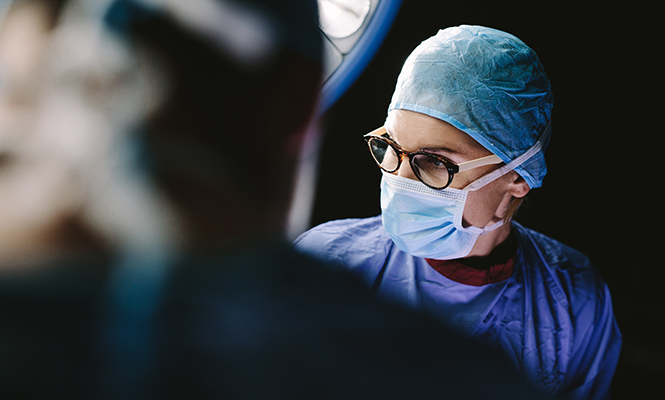 “You practice and you get better. It’s very simple.”
“You practice and you get better. It’s very simple.”
Science and practice are not words typically uttered together. Yet, AANS President Shelly Timmons, MD, PhD, FAANS, FACS, took the bold leap of marrying them as The Science of Practice for the theme of the upcoming AANS Annual Scientific Meeting in San Diego. As a physician, a myriad of concepts devolve from this intriguing phrase that are worth exploration:
- The scientific evidence that drives best practices and decision making in medicine.
- The transformation of our practice to become science that facilitates improvement.
- The definition of essential data in the administrative processes that define the practice of medicine, and
- Understanding the critical role of practicing in becoming and remaining an outstanding physician, especially one that requires technical expertise.
Each of these, and perhaps others, fit under the global umbrella of this provocative theme and are touched upon in this issue of the AANS Neurosurgeon. However, the concept that most captures my imagination at the moment is the last. Clearly medical education has been transformed in the last decades and neurosurgery has been a definitive leader in these endeavors. Work by the Residency Review Committee in conjunction with the ACGME and the Society of Neurological Surgeons has led to such transformative efforts such as the Matrix and Milestones for resident education along with the development of a comprehensive curriculum. All of these address WHAT must be achieved. There is also appropriate emphasis on insuring competence and not just coverage in each of these realms. However, there has been little discussion or attention placed on HOW to best achieve the final product, especially as it pertains to the technical elements of our practice.
How to Optimally Practice?
Returning to Philip Glass inspires an exploration of how a musician would approach reaching technical excellence. As he related in his remarkable book, Words Without Music-A Memoir, Philip Glass honed his mastery through a complex series of exercises across a wide spectrum designed to:
- Train specific skills, such scales or trills;
- Enhance strength, dexterity or stretch;
- Learn specific compositional nuances; and
- Optimize performance day presentation (mastering nerves, handling the audience, etc.).
He was particularly poignant in noting one masterful teacher who:
“…would rescue you by giving you exercises that would then train you to overcome the handicaps which she had uncovered for you.”
This last is quite a powerful statement, both in terms of the importance of those that teach and also the essential tools needed to achieve the goal desired. Increasingly, there are programs to “teach the teacher” but the focus is rarely on this technical aspect of tutelage.
The Sports Paradigm of Practice
Sports create another paradigm to explore the optimal approach to reach one’s highest potential and stay there. Peyton Manning (arguably the best quarterback of this generation) touched on this during the Opening Ceremonies of the 83rdAANS Annual Scientific Meeting.
Much like musical mastery, sports practice goes well beyond repetitively playing game rehearsals. Just some of the preparation in sports would include drills for the following:
- Agility, speed and strength;
- Individual skill repetition (blocking, throwing, catching);
- Limited scenario reenactment (throw-catch, dribble-pass, etc.), and
- Mock plays and reaction to unusual situations.
His insights into how to approach this challenge includethe following insights:
- Intense preparation is essential;
- Creativity drives solutions;
- Everyone needs an honest coach (mentor) who will provide a different perspective;
- Be determined to keep raising the bar; and
- Instill trust in others to bring out the best.
Application to Neurosurgery and Beyond
How might a musician/composer and a quarterback/leader impact neurosurgery in the realm of The Science of Practice? Clearly their successful approaches should make those of us that train the next generation of physicians take pause and think critically about how we grow the skills of these individuals. We have moved well beyond the model of mere apprenticeship and are learning rapidly about how to provide cogent and useful feedback to a resident after observation of their work. But still, our efforts are primarily directed at providing the opportunity for repetition of the “full deal”-the equivalent of a performance of a musical piece or of a game day dress rehearsal. Are there other things we should be considering? Would there be any value in developing programs that:
- Honed three-dimensional perception,
- Increased finger/hand strength and dexterity,
- Forced greater ambidextrous balance, and
- Taught individual skills that were most difficult to perform?
On a limited basis, studies have clearly demonstrated that there is benefit to such approaches. For example, surgical simulation can bend the learning curve considerably, limiting the most dangerous portion of the ramp up to competence. Microsurgical labs greatly enhance the speed and dexterity of performing those highly specialized skills. No doubt, there is more that could and should be done. As scientists we owe it to ourselves, our residents and the patients who trust in the care within a training environment to create the safest setting possible. Even beyond the training period, many such exercises would likely prove beneficial, especially when introducing new techniques or in adjusting to the impact of age.
Call to Action
Neurosurgeons should lead the way in a better understanding of all components of The Science of Practice. This includes all the areas of current focus as well as the need to better understand how to best train the next generations to perform complex technical skills to optimize patient quality and outcomes. If we turn our creativity and expertise to this, I have no doubt that true progress will be realized.
[aans_authors]







